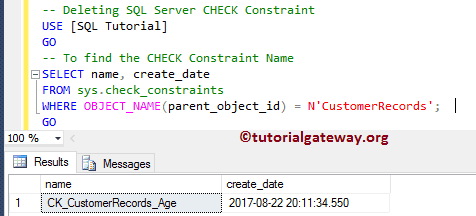
I'm using REPLACE rather than hard-coding the LIKE pattern because I find it more readable what the pattern is checking. Neither of these would match the desired CLR regex and although using the set syntax ( ) rather than the range syntax ( ) resolves the first one it is still collation dependent whether 2 matches ² or not. I'm using the binary collate clause so strings like ¾¾¾.¾¾¾.¾¾¾¾ or 10².10².1000 don't pass the check ( as can happen on some collations). You can use DECLARE TABLEĬol LIKE REPLACE('','d','') I'm assuming that you just want to match latin 0-9. So in many flavours it would match ١١١.١١١.١١١١ (that character being Arabic-Indic Digit One) Unicode flavors match only ASCII digits with \d. Notable exceptions are Java, JavaScript, and PCRE. In most flavors that support Unicode, \d includes all digits from all Just by way of comparison after altering the check constraint to produce untyped XML it took 1 min 25 seconds to insert that quantity of rows so the typed XML does add some significant overhead on top of that.The regex in your question is not entirely unambiguous This is a penalty in the order of 24 microseconds per row vs no constraint so it would need to be evaluated whether this is a price worth paying or not taking into account expected volume of inserts/updates. Using the typed XML approach took 4 minutes. LEFT(Value,2) COLLATE Latin1_General_100_BIN2 NOT LIKE CONCAT('%%')ĪND SUBSTRING(Value,3,10) COLLATE Latin1_General_100_BIN2 NOT LIKE CONCAT('%%') With the below check constraint in place the native TSQL attempt took 17 seconds ALTER TABLE. Return new SqlBoolean(regexObj.IsMatch(valueToCheck.Value)) Public static SqlBoolean PatternValidator(SqlString valueToCheck) SystemDataAccess = SystemDataAccessKind.None)] [SqlFunction(DataAccess = DataAccessKind.None, Private static readonly Regex regexObj = new RegexOptions.Compiled) Public partial class UserDefinedFunctions When inserting 10 million valid values into the table with a TABLOCK hint on my machine it took about 2.6 seconds with no check constraint.Ĭalling the below in a check constraint increased this to 12 seconds with the CLR function using Unfortunately there is a potentially significant performance penalty to pay though. The offending value is helpfully shown in the error (though the rest of the message may cause confusion) Performance The final value attempted violated the expression as it is upper case so the insert was blocked. XML Validation: Invalid simple type value: 'AX1234567890'. Insert some rows INSERT INTO dbo.DemoTable It is there to cause the conversion to typed XML to be invoked as any failures will cause an error to be thrown. The check constraint isn't really checking anything worthwhile. This approach is not very flexible for general validation as any failure will throw an error so it can't be used to determine good and bad rows in a set based way, but for the purposes of aborting the insert if a single bad value is found it works fine. Create an XML Schema with a pattern constraint containing the regex CREATE XML SCHEMA COLLECTION dbo.PatternValidatorSchemaĪdd a check constraint so inserts/updates are validated ALTER TABLE dbo.DemoTableĪDD CONSTRAINT CK_ValidateValueMatchesPatternĬHECK (CAST(ISNULL('' + REPLACE(REPLACE(REPLACE(Value, '&','&'), '','>') + '','') AS XML(dbo.PatternValidatorSchema)) IS NOT NULL) This leverages XML Schema Regular Expressions. This answer gives a solution for the cases where these are not an option (perhaps as disabled by policy or using Azure SQL database where these are not available).


Involving regular expressions, string handling, and NLP support.Įxamples of using regular expressions with these technologies are already available on the Microsoft Site ( CLR, Java) This extends the TSQL surface area to better handle use cases Regular Expression support is available by using CLR and is also called out as one of the possibilities enabled by the Java language extension. This is already fairly messy (I'm not even certain that it is currently correct) and it becomes completely unviable for more complex patterns. From 3rd character on must match NOT LIKE CONCAT('%%').First 2 characters must match NOT LIKE CONCAT('%%').
#SQLITESTUDIO CHECK CONSTRANTS REGEX CODE#
The max length of 12 is enforced by the datatype and use of varchar means there are only 6 white space characters in my code page.

It isn't impossible to do the validation for this relatively simple regex with a native TSQL expression. PATINDEX supports a limited set of wild cards but has no support for character classes such as \s to match white space or quantifiers.


 0 kommentar(er)
0 kommentar(er)
